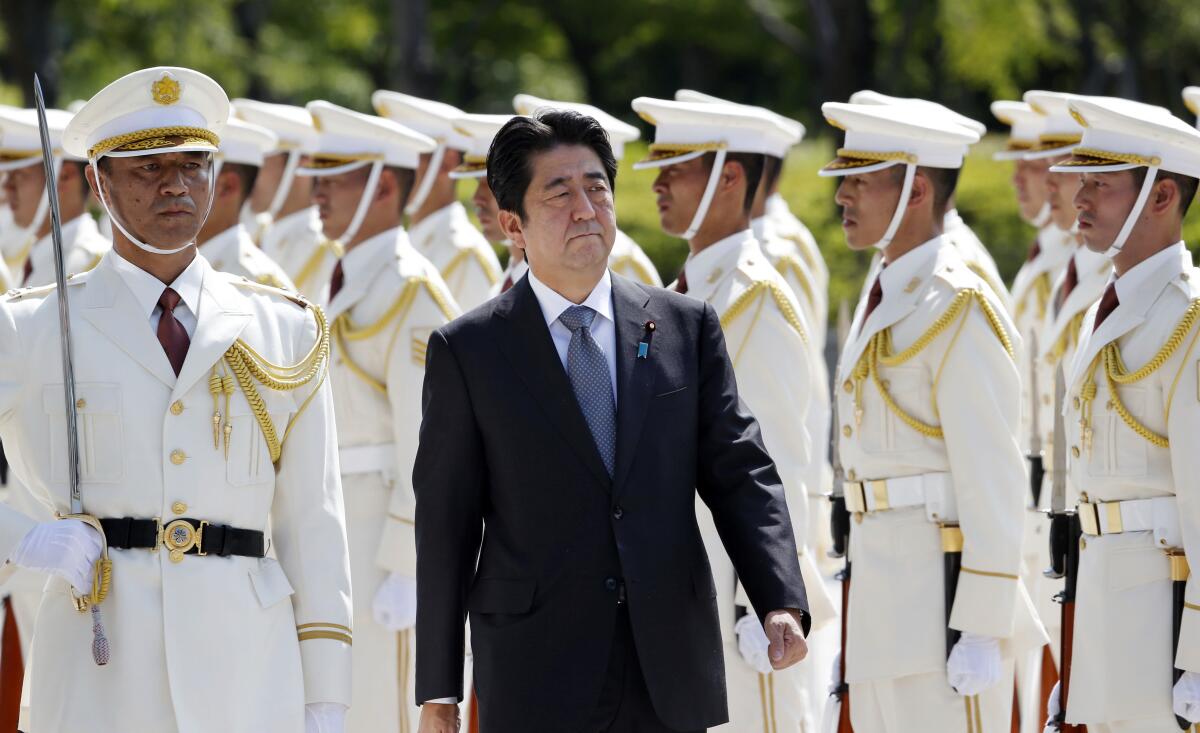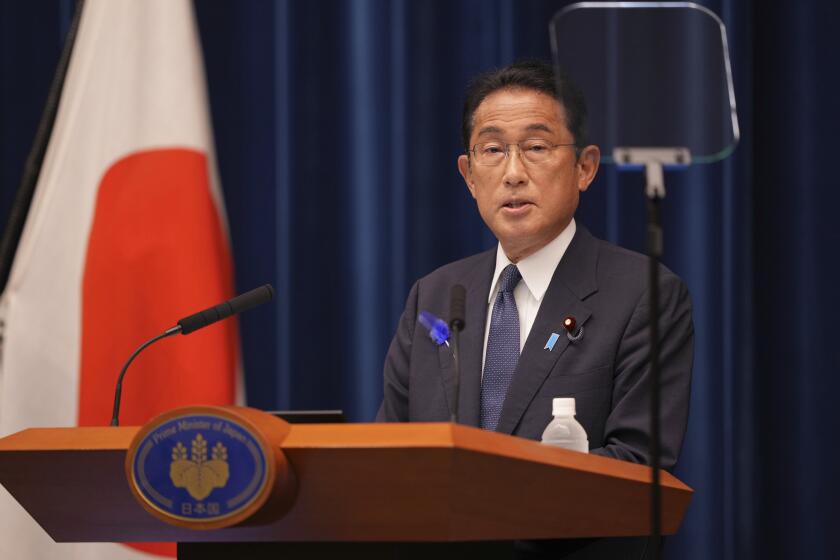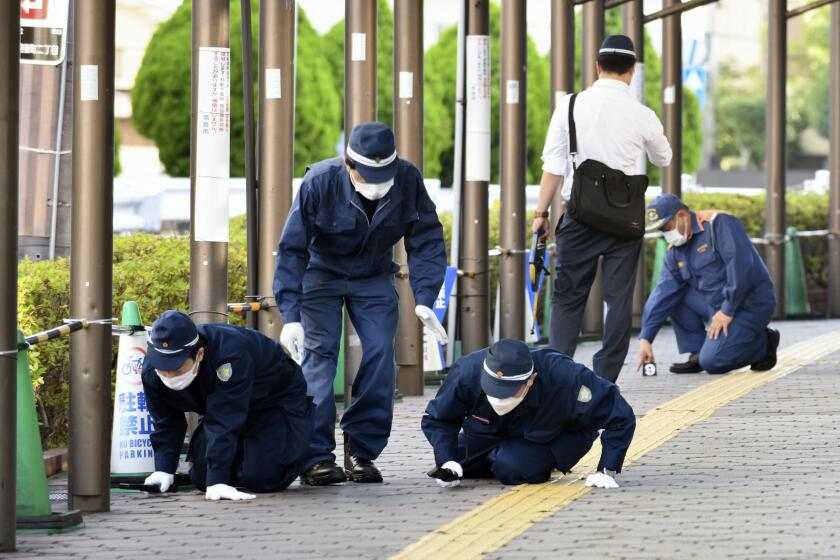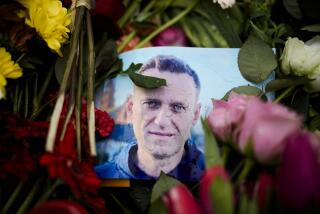Japan sets state funeral for assassinated former leader Shinzo Abe, to mixed public reaction

- Share via
TOKYO — Japan’s Cabinet on Friday formally decided to hold a state funeral Sept. 27 for assassinated former Prime Minister Shinzo Abe amid national debate over the plan, which some criticize as an attempt to glorify a divisive political figure.
Abe was gunned down this month during a campaign speech in the western city of Nara, shocking a nation known for safety and strict gun regulations. The suspected gunman was arrested immediately after the shooting and is being detained for interrogation as authorities seek to formally press murder charges.
Chief Cabinet Secretary Hirokazu Matsuno said a state funeral was appropriate because of Abe’s “distinguished contributions” as Japan’s longest-serving leader and his “outstanding leadership and decisive actions” in broad areas, including economic recovery, the promotion of diplomacy centered on the Japan-U.S. alliance, and reconstruction after the 2011 earthquake and tsunami.
Matsuno said the funeral would be a nonreligious ceremony held at the Nippon Budokan, an arena built for the 1964 Tokyo Olympics that has become a popular venue for sports, concerts and cultural events. The government also holds an annual memorial service at the arena Aug. 15 marking Japan’s defeat in World War II.
Foreign dignitaries will be invited to Abe’s state funeral, Matsuno said, though further details, including the estimated cost and number of attendees, are yet to be determined.
Prime Minister Fumio Kishida last week announced plans for the funeral, which some see as a move to stabilize his grip on power by pleasing ultraconservatives who backed Abe, who led the ruling Liberal Democratic Party’s biggest wing.
Japan’s prime minister says that ‘problems with the security measures’ allowed a gunman to assassinate former Prime Minister Shinzo Abe at a campaign event.
The plan has received a mixed reaction from opposition leaders and the public. Some oppose the use of tax money on the event, while others accuse Kishida’s governing party of politicizing Abe’s death to glorify him and attempt to cut off debate over his divisive legacy, including his hawkish diplomatic and security policies and revisionist stance on wartime history.
On Thursday, a civil group opposing plans for Abe’s state funeral submitted an injunction request asking the Tokyo District Court to suspend the Cabinet decision and budget for the event, saying a state-sponsored funeral without parliamentary approval violates the constitutional right to freedom of belief.
Dozens of protesters stood outside the prime minister’s office Friday to oppose the Cabinet decision. An opposition leader, Mizuho Fukushima, said the decision was not based on public consensus, had no legal basis and should be scrapped.
Abe’s private funeral was held at a Tokyo temple July 12 and attended by about 1,000 mourners, including lawmakers, business leaders and others.
The marks on a building near where the former prime minister was slain were apparently from the first shot fired by the gunman. The second was fatal.
Abe’s assassination shed a light on his and his party’s decades-long questionable links to the Unification Church.
The alleged assassin, Tetsuya Yamagami, 41, has told police that he killed Abe because of his links to a religious group that he hated. His reported accounts and other evidence suggest that he was distressed because his mother’s massive donations to the church had bankrupted the family.
More to Read
Sign up for Essential California
The most important California stories and recommendations in your inbox every morning.
You may occasionally receive promotional content from the Los Angeles Times.












